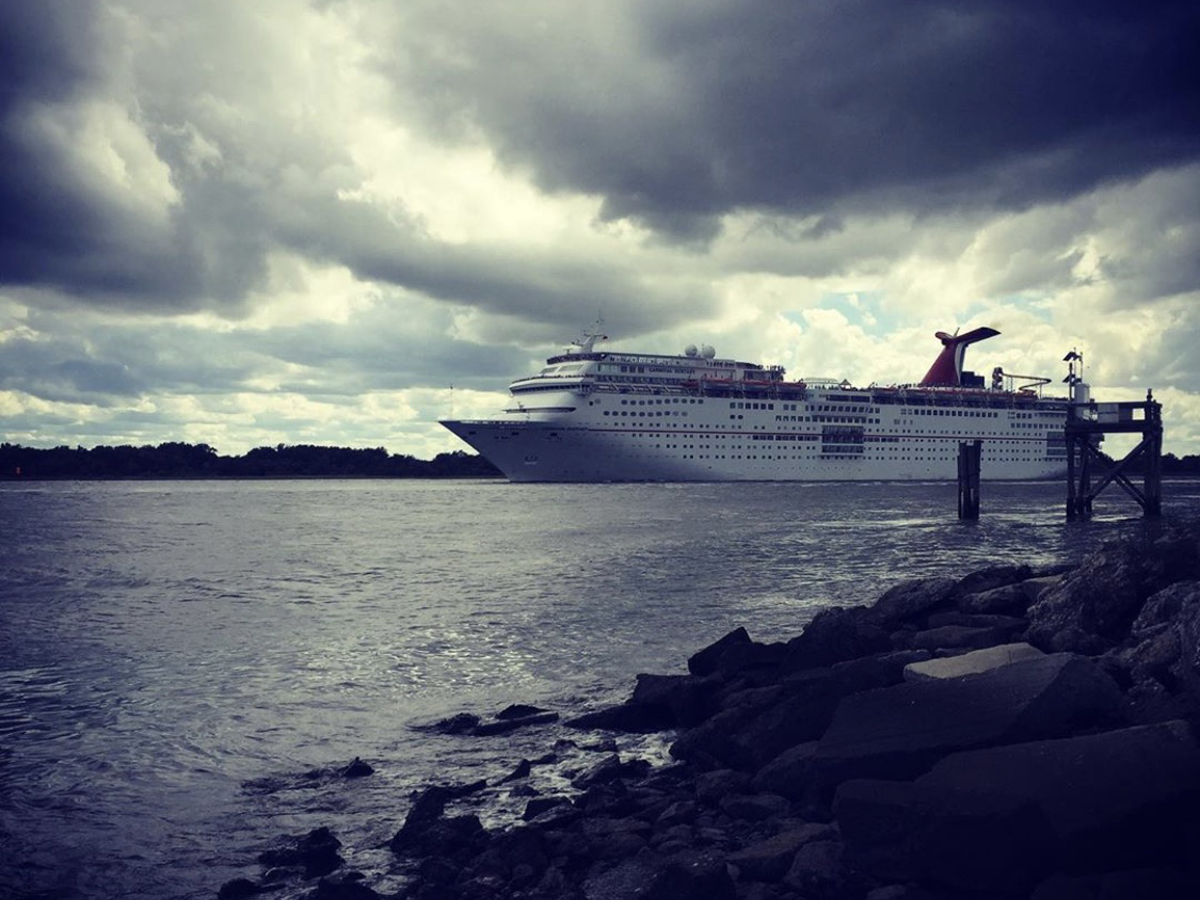Table Of Content
- Are there any religious or cultural restrictions on the handling of a deceased passenger’s body?
- Do Cruise Ships Have Morgues Onboard? (Why & where?)
- Search Cruises
- Where Is the Morgue Located?
- How do cruise lines handle the death of crew members onboard?
- Exploring Juneau: History Wilderness Local Delights Uncovered
- How Did the Author Connect With Fellow Passengers Despite Experiencing Seasickness?

The size of the morgue depends on the ship’s capacity, and they are required to carry body bags. Onboard morgues on cruise ships are crucial for providing respectful care to the deceased until they can be transported home. So, the key takeaway is that cruise lines prioritize the safety and well-being of their passengers, even in death. Federal authorities play a pivotal role in investigating suspicious deaths on cruise ships, particularly when concerns of foul play arise. The FBI, in particular, takes charge in cases of suspicious deaths on U.S. cruises, focusing on determining if foul play was involved. These investigations are conducted separately for criminal and civil purposes, ensuring a comprehensive inquiry into the circumstances surrounding the death.
Are there any religious or cultural restrictions on the handling of a deceased passenger’s body?
While smaller cruise lines can accommodate 2-3 bodies, larger ships can sometimes store up to 10 bodies. Bodies can be stored in shipboard morgues as needed, though not for much longer than a week. Each oceangoing cruise ship is required to carry body bags and maintain a morgue. Separate from food storage areas, most morgues are small, with room for three to six bodies. When a passenger dies on a cruise ship, the family can’t request that the body is immediately buried at sea. Cruise ships don’t have the facilities to carry out the formalities of processing a body and providing a death certificate, which lists the cause of death.
Do Cruise Ships Have Morgues Onboard? (Why & where?)
However, many do offer services that allow ashes to be scattered at sea. It varies by cruise line, but some offer dedicated ceremonies for this type of service. Cruise lines will also often employ dedicated staff to assist the on-board family of someone who has passed away. They are not usually trained counsellors, but they are available for support of administrative matters such as arranging the repatriation of the body and contacting a funeral home.
Search Cruises

While cruise ship deaths are tracked by federal governments, they may not publicize the statistics. However, if you are concerned about crime on cruise ships, these stats are published and nominal. Generally speaking, the first large port city the ship calls at is where the body will be offloaded, taken to a medical examiner's office and repatriated. But each country has its own rules and regulations about accepting bodies, declaring cause of death and repatriating remains.
Where Is the Morgue Located?
Family Sues Celebrity Cruises for Allegedly Mishandling Body of Man Who Died on Board - Inside Edition
Family Sues Celebrity Cruises for Allegedly Mishandling Body of Man Who Died on Board.
Posted: Mon, 24 Apr 2023 07:00:00 GMT [source]
And, of course, this isn’t like a land holiday where the body can be taken to a local morgue. Sometimes, passengers will die in the middle of the ocean, far away from any funeral home. While nobody wants to think about dying on vacation, it is the unfortunate truth that sometimes it happens.
An accompanying passenger to the deceased will also tend to disembark with the body.
Cruise ship morgues have space for several bodies
Cassidy Gifford's acceptance as godmother signifies the intersection of the entertainment and travel industries, underscoring Carnival's recognition of her contributions. This announcement highlights the deep ties between entertainment icons like the Giffords and the travel sector, emphasizing the influence of family connections on industry partnerships. Coordination between the cruise line and the family is vital for the smooth handling of the transfer to the morgue and subsequent repatriation process. Upon the discovery of a passenger's death on a cruise ship, immediate notification to the relevant authorities is a crucial step in the established procedures and protocols.
Exploring Juneau: History Wilderness Local Delights Uncovered
The tourism industry understands the importance of maintaining a clean and hygienic environment for everyone’s safety. They have taken proactive steps to regularly sanitize high-touch surfaces and provide hand sanitizer throughout tourist areas. Additionally, they have implemented measures to encourage social distancing, such as reducing capacity in hotels, restaurants, and entertainment venues. It is important for travelers to be aware of these COVID-19 testing protocols to ensure a smooth return to the United States and a safe travel experience. It is also mandatory for travelers to fill out a Travelers Health Affidavit and provide contact details for the next 30 days. These measures are in place to ensure the safety of both tourists and locals amidst the ongoing pandemic.
How Did the Author Connect With Fellow Passengers Despite Experiencing Seasickness?
Ex cruise ship singer reveals morbid reason crew members throw 'free ice cream parties' - The Mirror
Ex cruise ship singer reveals morbid reason crew members throw 'free ice cream parties'.
Posted: Wed, 28 Feb 2024 08:00:00 GMT [source]
For example, if someone passes away in the South Pacific, the body tends to remain in the morgue until it returns to a major port, as few islands can handle repatriation. Authorities in third-world infrastructures can refuse to allow the remains off a ship. The most significant concern regarding death at sea is returning the body home.
The morgue is usually located out of the way from main passenger areas, often on one of the lower decks of the ship without windows. This provides privacy and reduces the chance of passengers accidentally encountering the morgue. This allows the cruise ship to keep the deceased person on board until the body can be properly returned to land.
Through this experience, I made lasting connections with fellow passengers, creating memories that would stay with me forever. The cause of death, if identified, is documented with precision and may be shared with relevant authorities as part of the investigative process. Look around on your next cruise – it’s common to see elderly people or those in seemingly poor health. Some choose to have one last trip as their health is failing or they’ve got a terminal illness. On river ships, there isn’t usually a doctor as the ships are never far from the next port.
You would then pass the urn to the Guest Services team on board who would carry out the service for you – you don’t just get to pick and choose a location on the ship to do it. You would likely be able to attend, but expect the service to happen at a discreet time and place, away from other guests. A typical cruise morgue is able to hold at least three bodies, with an average capacity of three to six. A lot of travel insurance plans will cover repatriation costs, but not all. But this is another example of why insurance is a must on a cruise holiday. Any death-related costs incurred should be covered by travel insurance but make sure any cover includes repatriation.
It’s normally required that a person disembarks with the body and if this does happen a passport is needed for everybody who leaves the ship. If travel insurance has been purchased then the cruise line/passenger in question would be in touch with their insurance provider. However, for extremely sensitive matters, almost all cruise lines use the same critical codes.
Prior to arriving at the next port, the ship’s staff will contact relevant authorities such as customs officials and the local morgue to arrange for body disembarkation. The body will be respectfully removed from the passenger’s cabin and transported to the ship’s morgue. It will be stored there in refrigeration until arrival at the next port. Cruise ships are required by maritime law to have basic medical facilities, including a morgue. Religious customs and cultural traditions may dictate the handling of a deceased passenger’s body. It’s important for cruise lines to respect and accommodate these beliefs while still fulfilling their duties.

No comments:
Post a Comment